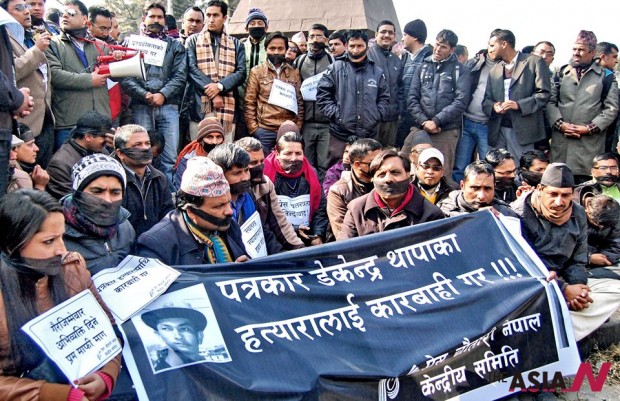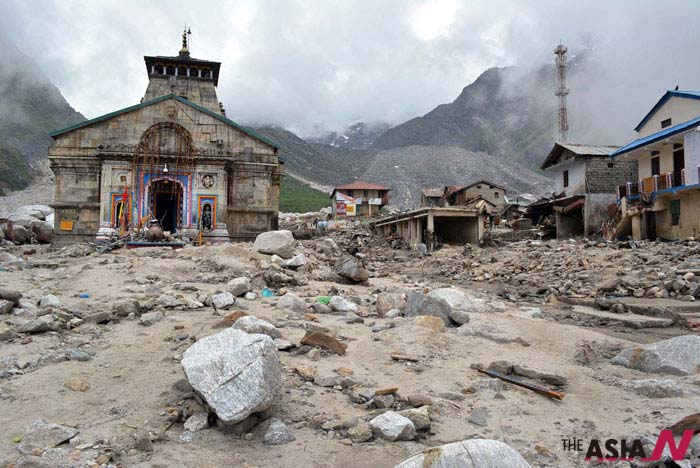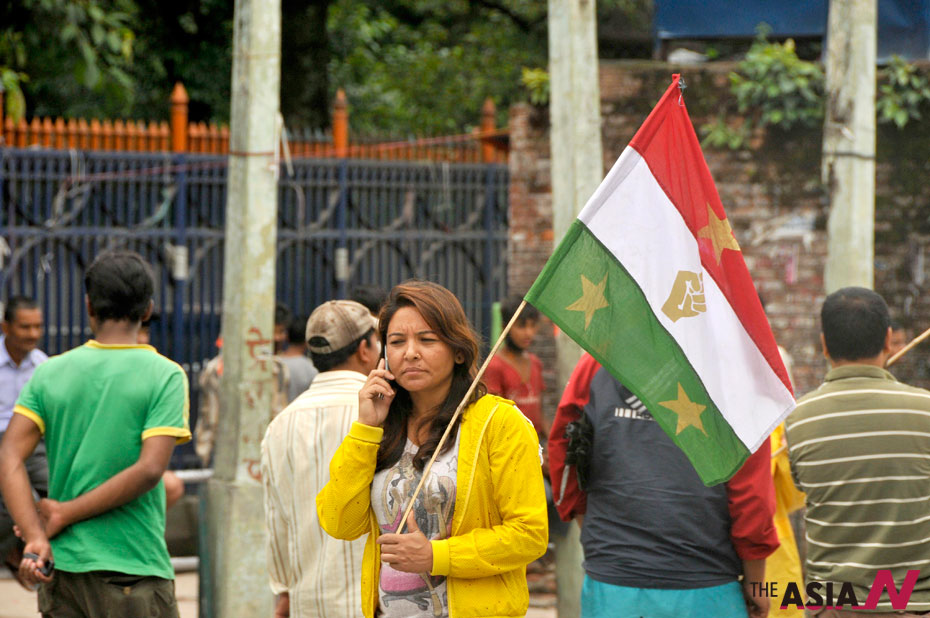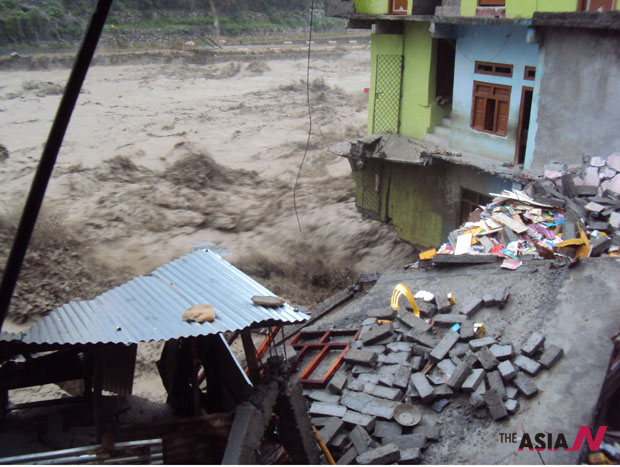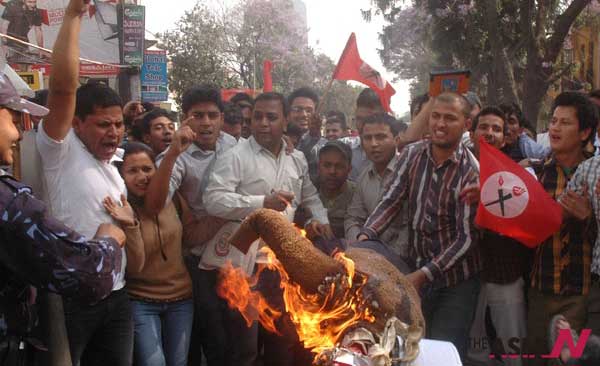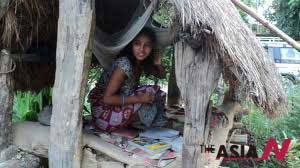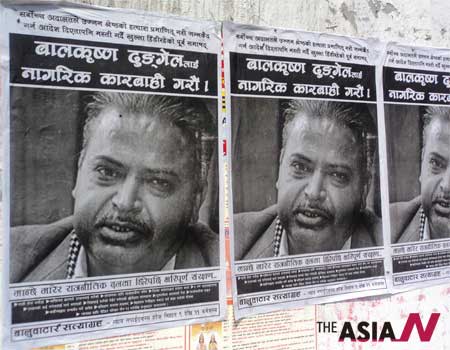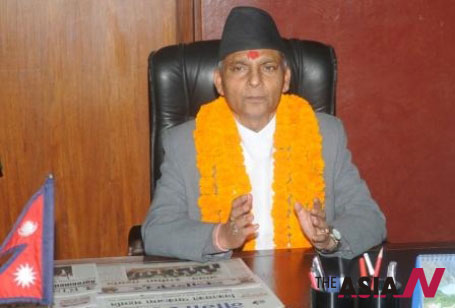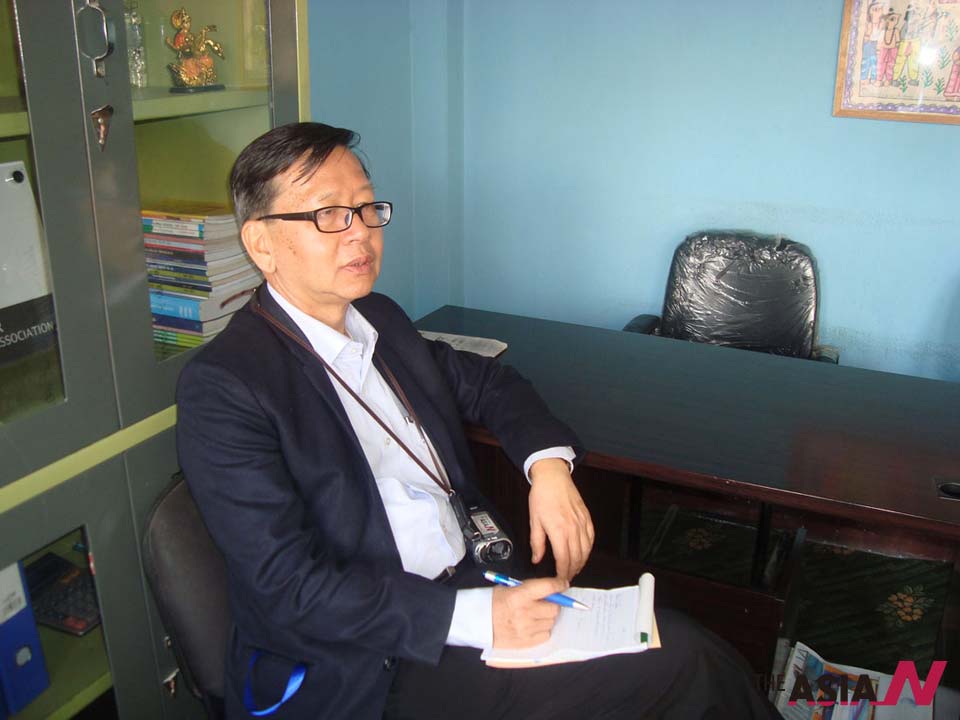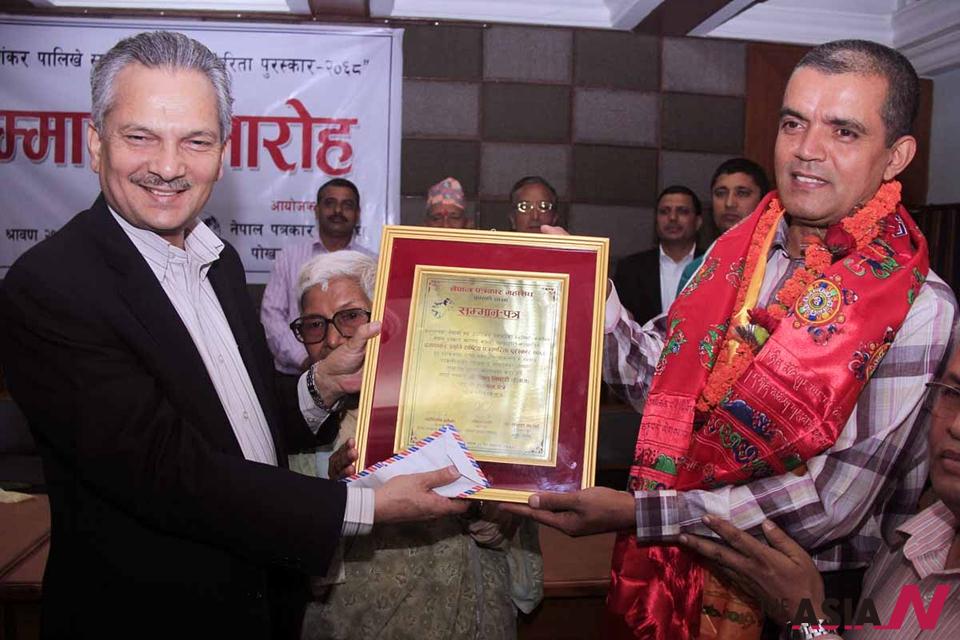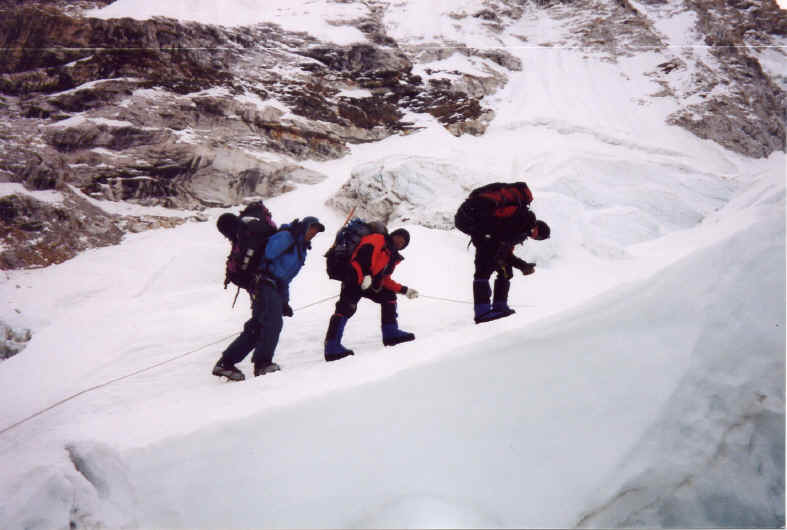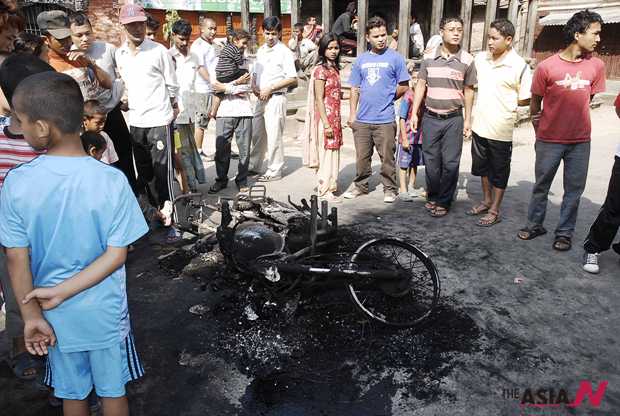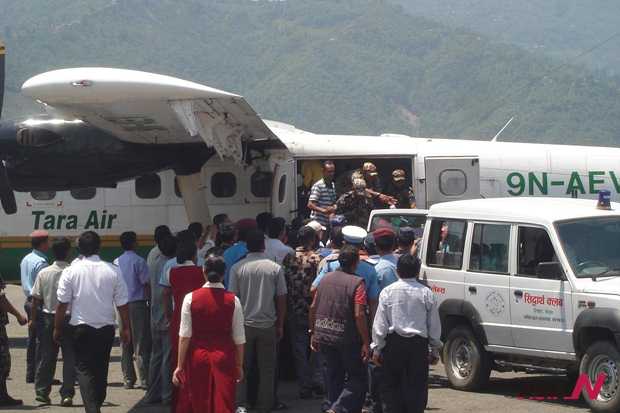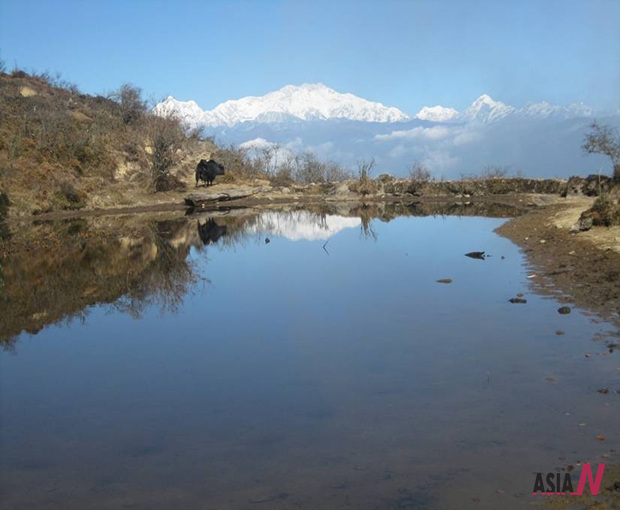
Nepali journalists stand up against gov’t for not punishing Maoists who killed a journalist
KATHMANDU, Jan 13 – Journalists in Nepal have taken to street against Prime Minister Dr. Baburam Bhattarai for his attempt to halt the investigation into an eight-year-old murder incident and dismiss the case.
Led by the Federation of the Nepali Journalists (FNJ), the umbrella organization of the journalists, they have been demonstrating against the government in the streets of the capital for the past few days.
When police in Dailekh in western Nepal arrested five cadres of the Maoists on January 4 for burying journalist Dekendra Thapa alive in 2004 and initiated interrogating them, Prime Minister Dr. Bhattarai opposed the police move while addressing a public programme organized in Kathmandu on 8th January.
The Prime Minister’s remarks not only drew flaks from the journalists but also prompted them to take to the streets.
Although the Prime Minister refuted the news reports that he had instructed the Dailkeh police to halt the investigation, he did not stop criticizing the police for arresting the Maoist cadres.
When the local media published a letter sent by Attorney General Mukti Pradhan to the district attorney office instructing it not to move ahead the case and destroy the evidences, it only fueled the anger of the agitating journalists.
However, the arrestees had admitted the crime and said they were ready to face any punishment for the heinous crimes they committed eight years ago.
Lachhiram Gharti, one of the arrestees, said, “Although Thapa was a good man, we killed him mercilessly after torturing for five days at the instruction of local Maoist leader and I am now ready to face any punishment for involving in his killing.”
But the government and the Maoist leaders who are controlling the state mechanism for the past one and half years have been trying their best to halt the judiciary processes fearing that they might also be dragged to similar cases as most of the leaders were once involved cleansing their enemies.
The Maoists had killed some 15,000 people during their decade long killing spree and some of the Maoist leaders are enjoying state security even after Supreme Court of Nepal convicted them in murder cases and served a life imprisonment on them.
Human rights activists as well as the UN have warned the government not to halt the case relating to the unlawful killing of journalist Thapa. However, the government is claiming that individual cases will only jeopardize the ongoing peace process and no one who disagrees with the Maoism, agree with such claim.
“We will intensify our movement against the government which has given protection to the murderers of the journalists,” said former FNJ president and AJA vice chairman Bishnu Nisthuri.
FNJ chairman Shiva Gaunle has warned of taking the case to the international court if the government continued to obstruct the proceedings of the murder case.
Human rights activists, lawyers and opposition parties have expressed their solidarity to the movement of the journalists.



